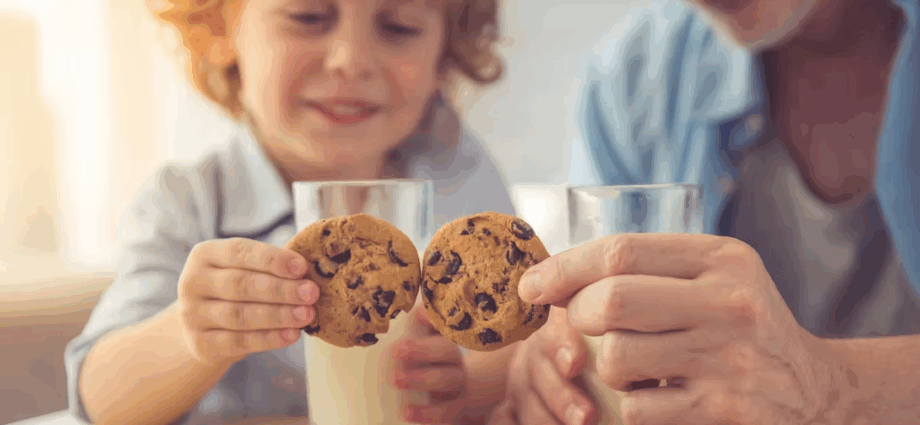
Rebecca Merkley, Carleton University and Liza Kahwaji, Carleton University
April 22, 2025
The cookie challenge is one of the latest trends to go viral on TikTok. In the challenge, parents test how willing their child is to share a cookie. Typically, two adults and one young child each have a covered plate in front of them.
When the covers are removed, the child has two cookies on their plate, while one parent has one cookie and the other has none. Most children subsequently either keep both cookies or give one to the parent who had none.
The big question these parents are asking is: will my child share their cookies with me?
Would your child share with you?
Sharing is all about giving up personal resources to benefit others. It is a prosocial behaviour that requires thinking about the thoughts, desires and needs of others, which can sometimes be challenging for young children.
Children need to use several of their developing social and cognitive reasoning skills to share during the cookie challenge. They must:
a) recognize they have more cookies than their parents do;
b) inhibit their desire to immediately eat their cookies themselves; and
c) understand their parents also want a cookie.
Cognitive development research has shown that children develop all these skills over their first few years of life. Even if your young child thinks sharing is the right thing to do, they may not be able to connect all of their developing cognitive skills to support their sharing behaviour when faced with a cookie challenge. So, if a child doesn’t share, it doesn’t necessarily mean they are selfish.
If you’re curious about whether your child would share with you, try the cookie challenge and see what they do.
Rebecca Merkley, Assistant Professor, Department of Cognitive Science, Carleton University and Liza Kahwaji, Masters Student, Psychology, Carleton University
Subscribe to our newsletter.
This article is republished from The Conversation under a Creative Commons license. Read the original article.

